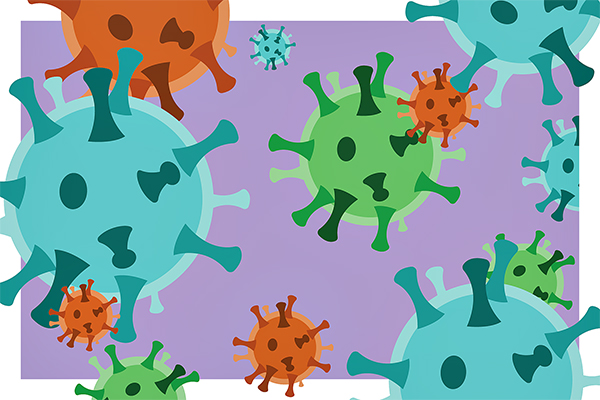Third COVID-19 variant detected on UT-Austin campus
April 8, 2021
The University identified a third and potentially more contagious variant of COVID-19 on campus, according to a letter sent on Wednesday to the UT community.
The University has detected one case of the P.1 COVID-19 variant on campus, said Susan Hochman, associate director for assessment, communications and health technology at University Health Services. The Center for Disease Control and Prevention has reported 356 cases of the variant since they first identified it in the U.S. in January.
“Based on early epidemiologic studies, we think this variant is more contagious than the non-variant strain of COVID-19,” said Amy Young, chief clinical officer of UT Health Austin. “However, we cannot say if it is more contagious than other variants.”
Young said vaccination is not proven to work against the P.1 variant at this time.
“There is presumed less protection against the P.1 variant based on its ability to evade neutralizing antibodies both from vaccination and prior infection; the degree of this effect is currently not known,” Young said. “Regardless, everyone who is eligible is encouraged to get vaccinated as soon as possible.”
The University will announce future COVID-19 variants found on campus through a University announcements page instead of a campuswide email.
“We have learned more about variants over time, and we will likely continue to have new variants,” Young said. “Rather than continue email notification with each new variant, we think it is more prudent to provide a central resource for those interested while they continue to practice protective measures and reserve campuswide emails for instances where significant or new action may be required.”
Young said people should continue to wear masks, wash their hands and social distance to protect themselves against both the new variant, as well as other variants on campus.
“It is very helpful to our community to isolate if diagnosed with COVID-19 and work with contact tracers to prevent the spread of disease,” Young said.











